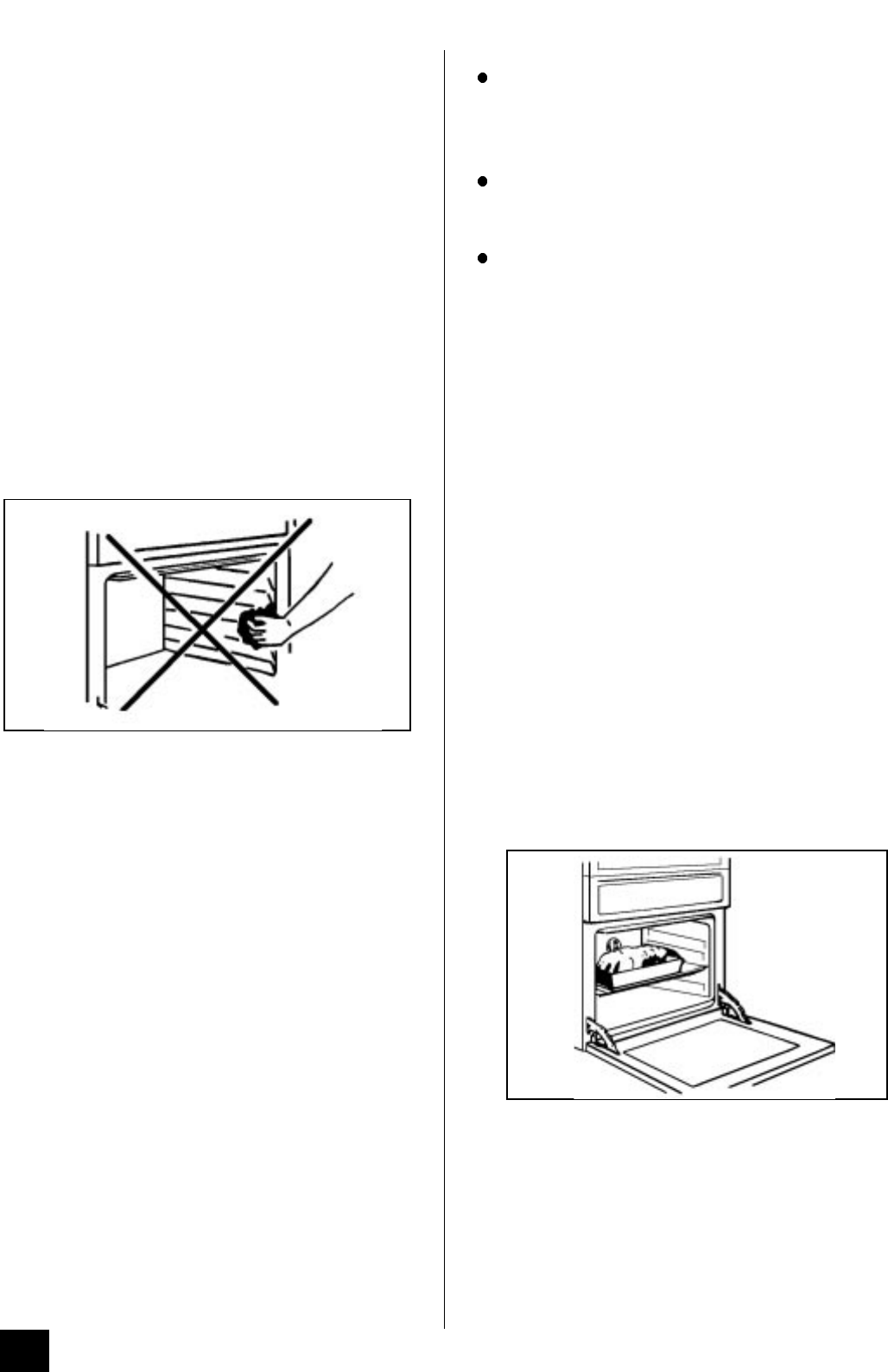
TO CLEAN INSIDE THE INNER GLASS DOOR
The inner glass door is not removable. Clean using
hot soapy water or Hob Brite and a soft cloth. Take
care NOT to use abrasives as they may damage the
glass or seal.
CLEANING INSIDE THE OVENS
The Stayclean surface inside the ovens should not
be cleaned manually. See 'Care of Stayclean
Surfaces'.
The vitreous enamel oven base can be cleaned
using normal oven cleaners or aerosol oven cleaners
with care. Ensure that the manufacturers instructions
are followed and that all parts are well rinsed
afterwards.
Aerosol cleaners must not be used on Stayclean
surfaces and must not come into contact with
the elements or the door seal as this may cause
damage.
The grill deflector is removable for easy cleaning.
Thorough cleaning with a soap impregnated steel
wool pad is recommended.
CLEANING THE OVEN SHELVES
AND GRILL/OVEN FURNITURE
Soak the oven shelves and grilling grid in hot soapy
water if heavily soiled, they will then clean more
easily.
The grill pan, meat tin and trivet can be cleaned
using a soap impregnated steel wool pad.
All the above items of grill/oven furniture are
dishwasher safe.
NOTE: The grill pan handle should not be cleaned in
the dishwasher.
CARE OF STAYCLEAN SURFACES
Stayclean surfaces destroy splashes of food and fats
when the oven temperature is raised to around
220°C.
To aid this process it is a good idea to run the oven
for an hour or two per week without food, to ensure
continued good performance from the Stayclean
finish.
HINTS AND TIPS
Manual cleaning of Stayclean is not
recommended. Damage will occur if soap
impregnated steel wool pads, aerosol cleaners
and any other abrasives are used.
Slight discolouration and polishing of the
Stayclean surface may occur in time. This does
not affect the Stayclean properties in any way.
Follow the recommendations below to keep oven
soilage to a minimum.
COOKING TO REDUCE SOILAGE
1. Cook at the recommended temperatures. Higher
temperatures during roasting will increase
soilage. Try cooking at lower temperatures for an
increased length of time, you will save energy
and often the joint is more tender.
2. Use minimal, if any, extra oil or fat when roasting
meat, potatoes only require brushing with fat
before cooking. Extra fat in the oven during
roasting will increase splashing and soilage.
3. It is NOT necessary to add water to the meat tin
when roasting. The water and the fat juices from
the joint create excessive splattering during
cooking, even at normal temperatures, as well as
causing condensation.
4. Covering joints during cooking will also prevent
splashing onto the interior surfaces. Removing
the covering for the last 20-30 minutes will allow
extra browning if required. Some large joints and
turkeys especially benefit by this method of
cooking, allowing the joint to cook through before
the outside is overbrowned.
5. Do use the trivet in the roasting tin. During
roasting the fat from the joint will be contained
beneath the trivet and therefore prevent it from
splattering onto the 'Stayclean' finish.
44


















